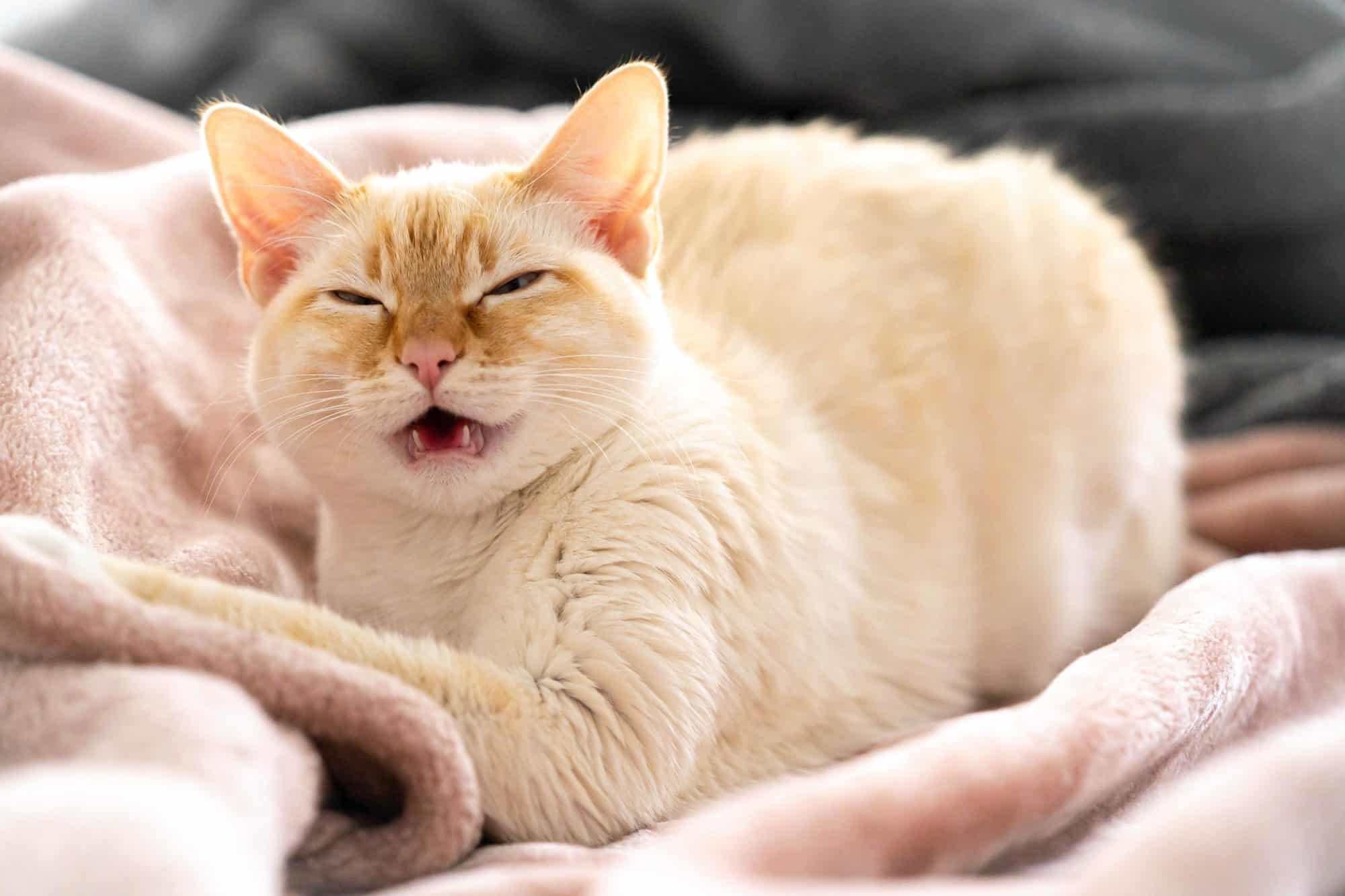Why Is My Cat Sneezing So Much?

At Sacramento Cat Hospital, we understand that seeing your cat sneezing frequently can be concerning. Cats, like humans, sneeze occasionally to clear their nasal passages of irritants. But persistent sneezing in your feline friend can be a cause for concern.
In this blog post, we’ll explore why your cat might be sneezing and guide you on when to seek veterinary care.
Common Causes of Sneezing in Cats
Sneezing in cats can be attributed to several causes, ranging from minor irritations to serious health concerns. Here are some common causes:
- Allergies: Just like humans, cats can suffer from allergies. Common allergens include pollen, dust, mold, and certain foods. If your cat is sneezing due to allergies, you might also notice other symptoms like itching, watery eyes, and skin irritation.
- Respiratory Infections: Upper respiratory infections are a leading cause of sneezing in cats. Viruses, bacteria, or fungi can cause these infections. Symptoms often include nasal discharge, coughing, and lethargy.
- Environmental Irritants: Smoke, strong perfumes, cleaning products, and other environmental irritants can cause your cat to sneeze. Ensuring a clean, well-ventilated environment can help minimize these triggers.
- Foreign Objects: Small particles such as dust or grass can get lodged in your cat’s nasal passages, causing irritation and sneezing.
Symptoms to Watch For
While occasional sneezing is usually not a cause for alarm, monitoring your cat for other symptoms that may indicate a more serious issue is essential. These symptoms include:
- Persistent sneezing
- Nasal discharge (clear, yellow, or green)
- Coughing
- Watery eyes
- Loss of appetite
- Lethargy
- Difficulty breathing
If your cat exhibits any of these symptoms, seek veterinary care promptly.
Treatment and Prevention
Addressing the underlying cause of your cat’s sneezing is essential for effective treatment and prevention. Here are some general approaches for different concerns:
- Allergies: Identifying and removing allergens from your cat’s environment can help reduce sneezing. Your veterinarian may also recommend antihistamines or other medications.
- Respiratory Infections: Treatment for respiratory infections typically involves antibiotics or antiviral medications. It is also important to ensure your cat stays hydrated and comfortable.
- Environmental Irritants: Avoid strong-smelling products and ensure your home is well-ventilated. Regular cleaning can also help reduce the presence of irritants.
- Foreign Objects: A veterinary examination is necessary if you suspect a foreign object is causing your cat’s sneezing. Your veterinarian can safely remove the object and provide appropriate care.
When to Contact Sacramento Cat Hospital
If your cat’s sneezing is persistent or accompanied by other concerning symptoms, it’s time to contact Sacramento Cat Hospital. Our experienced veterinary team is here to diagnose the cause of your cat’s sneezing and provide the necessary treatment to ensure their health and well-being.
Read about the importance of cat wellness in this related blog post.
Committed to the Highest Quality Care for Your Feline Friends
By understanding the potential causes of sneezing and monitoring your cat’s symptoms, you can ensure they receive the care they need. If your cat is sneezing frequently or showing signs of illness, don’t hesitate to schedule an appointment. Sacramento Cat Hospital is here to support your cat’s health and wellness.

